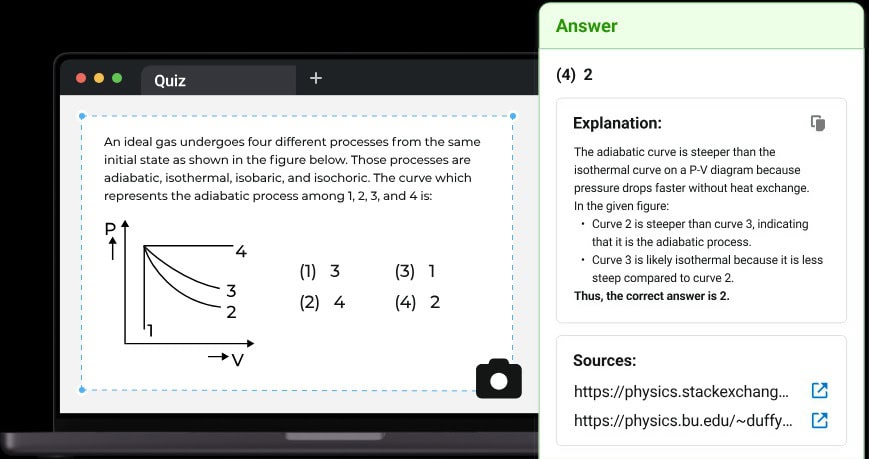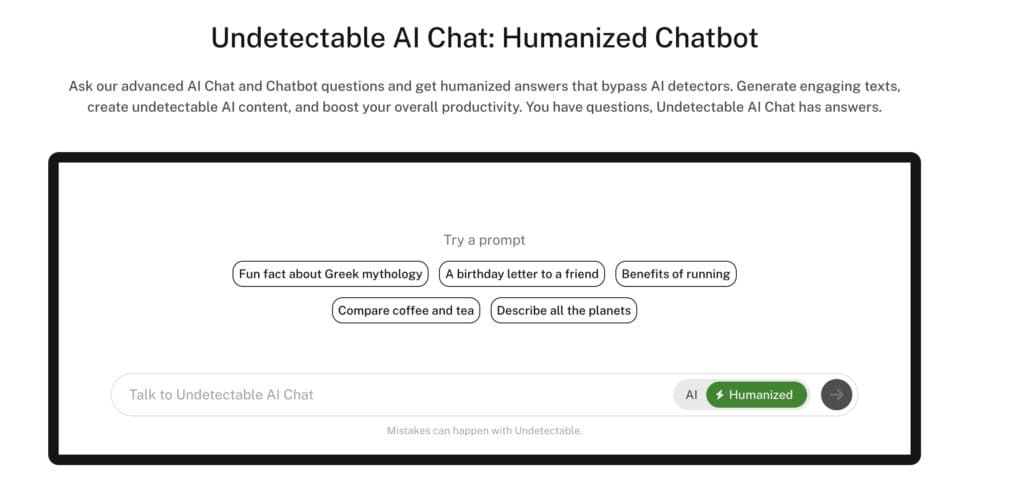Homophones are multiple words with identical pronunciation in English Language with
different spellings and meanings.
While writing, you may frequently confuse the word “whether” with “weather” or “hear” with “here.”
Though these words share the same pronunciation, they represent different meanings.
This article will provide complete answers to the question about what homophones are and their proper application.
Through this piece, you will learn how to spot popular homophones and learn how to put your writing on point.
Let’s get started.
What Are Homophones?
Two Greek words combine to form “homophone” The root word “homo” means “same” while the second part “phone” means “sound.”
The words we call homophones share identical pronunciations but have distinct spellings together with their own meanings.
For those wondering, “What are letter homophones?” It refers to letters that sound the same as full words.


Never Worry About AI Detecting Your Texts Again. Undetectable AI Can Help You:
- Make your AI assisted writing appear human-like.
- Bypass all major AI detection tools with just one click.
- Use AI safely and confidently in school and work.
For instance, “U” sounds almost exactly like “you”. C sounds like “see” etc.
Why Homophones Cause Confusion in Writing and Speaking
People often mistake homophones when they communicate verbally or through written documents.
When two words match with identical sounds, in the human brain, it creates confusion because words become linked to specific sounds.
Homophones also create confusion because each word has its own unique spelling.
The usage of homophones during speaking or writing changes both the sentence and the context depending on their application.
How Do Homophones Work in English?
To have a basic understanding of “what are homophones” in the English language, you need to know how they work.
Multiple homophones exist within the English language because many words originate from Latin, Greek and Germanic sources.
The English Language contains numerous words that share the same pronunciation while keeping their own specific spellings.
This is typically a result of the phonetic patterns and pronunciation elements within the English language creating these similarities between words.
The combination of silent letters in certain words produces identical sounds that match other words.
For example, “write” & “right” have the same pronunciation because the “w” in “write” is silent.
100+ Common Homophones (With Examples)
If you are wondering, what are homophones words to know?
The table below highlights some of the most common homophones you will likely encounter.
| HOMOPHONES | SENTENCE | HOMOPHONES | SENTENCE |
| Tail Tale | ”My cat has a long tail” “I’ve never heard such a long tale.” | Vain Vein | “He can be quite vain” “The nurse always finds a vein.” |
| Break Brake | ’Let’s break that wall” “Pull the hand brake” | Wait Weight | “I need you to wait a moment” “I need to shed some weight off” |
| Flour Flower | ”I need some corn flour” “That’s a pretty flower” | Complement Compliment | “The purse will complement your outfit” “It was a lovely compliment” |
| Hear Here | ”Can you hear me?” “Your ticket is right here” | Foul Fowl | “It has a foul smell” “I found a small fowl” |
| Sea See | ”I’ve never been out to sea before.” “I can’t wait to see you” | Beat Beet | “Give me a beat.” “I own a beet farm” |
| Bear Bare | ”I think I saw a bear in the woods” “I broke it with my bare hands” | Cast Caste | “I like the film cast” “They run a caste system” |
| Weather Whether | ”The weather looks good today” “He wasn’t sure whether to come or not” | Dear Deer | “You are dear to me” “I saw a deer at the zoo” |
| Male | ”I saw the male figure” “Please bring in the mail” | Hour Our | “I only need an hour” “Welcome to our house” |
| Peace Piece | “We come in peace.” “Give me a piece of cake.” | Hole Whole | “You don’t need to dig the hole” “I’d like the whole bunch” |
| You’re Your | “You’re a great friend” “I like your purse” | Know No | “I want to know you better” “She said no to my offer” |
| Knew New | “I knew he was there” “I have a new car” | Peak Pique | “He is at the peak of his career” “They managed to pique his interest |
| Write Right | “Can you write a poem for me?” “Where is your right hand?” | Pray Prey | “Let us pray together” “The hawk likes to prey on smaller birds” |
| Which Witch | “I need to know which route to take” “She is a good witch” | Meat Meet | “That meat looks delicious” “We will meet tomorrow” |
| Sun Son | “I love the sun” “I love my son” | Plane Plain | “I don’t want to miss my plane” “I just have the plain white rice” |
| Allowed Aloud | “I allowed him to leave” “She likes to read the notes aloud.” | Knight Night | “I will anoint the knight” “It’s a lovely night” |
| Boulder Bolder | “There was a huge boulder blocking the road” “She made the bolder choice to quit her job” | Wail Whale | “The whole area was surrounded with the wail of police sirens” “I found a blue whale” |
| Week Weak | “It’s my first week in the office” “I feel weak.” | Toe Tow | “I hit my toe on the curb” “We had to tow the car away” |
| Principal Principle | “Mary is the head principal” “It’s the principle of the thing.” | It’s Its | “It’s a great day” “Where is its toy?” |
| Steal Steel | “It is not good to steal’ “He looks like he is made of steel” | Pair Pear | “I need a new pair of shoes” “That pear looks juicy” |
| Fair Fare | “It was a fair deal” “How much is the bus fare?” | Cell Sell | “He is in the wrong cell” “I want to sell my car” |
| Passed Past | “I passed the parade on my way here” “It’s all in the past now” | Cent Scent | “I don’t have a single cent left” “Lavender is my favorite scent” |
| Rain Reign Rein | “I hope it doesn’t rain today” “The king’s reign did not last long” “She had a free rein over the business” | Dew Do Due | “I love the smell of morning dew” “This will do just fine” “The payment is due tomorrow” |
| Effect Affect | “The pink shade has a better effect” “I hope it doesn’t affect you” | Ferry Fairy | “I took the ferry to work this morning” “I want to be a fairy for halloween” |
| Threw Through | “I threw the ball into the neighbours compound” “It went through the window” | Phase Faze | “This is only phase one” “I hope you don’t let it faze you” |
| Way Weigh | “That is the way life goes” “How much does it weigh” | Fir Fur | “I have a fir tree in my backyard” “I love brushing my dog’s fur” |
| Whine Wine | “No need to whine over spilt milk” “Have a glass of wine” | Ring Wring | “You can just ring the bell” “No need to wring my wrist” |
| Wood Would | “I need to gather some wood for fire” “They would allow you in” | Knot Not | “I can tie a good knot” “He would not be happy’ |
| Road Rode | “Go to the end of the road” “I rode a horse today” | Seam Seem | “I ripped a seam at the hem of my dress” “It does seem that way sometimes” |
| Find Fined | “I hope you find the key” “She was fined for not obeying the traffic light” | Wee We | “I had a wee delay on my way here” “We can go together” |
| Waist Waste | “He held her by the waist” “It’s wrong to waste food” | Pail Pale | “I need a pail bucket” “Your face looks a bit pale” |
| Maid Made | “I need a new maid” “Mary made this dress for me” | Jean Gene | “I want to wear jean shorts” “I got the funny gene from my mom” |
| Seen Scene | “I have seen you around” “This is my favorite scene” | Forward Foreword | “Let’s move forward” “I wrote the foreword in his book” |
Another dynamic is the letter homophones. What are letter homophones?
This is where a letter has the same pronunciation as a single word. It is mainly used in text messages and often used in the same context as the word.
In English Language, only a few letters can be used in this manner. They include:
| LETTER | WORD | SENTENCE |
| C | See | “C you tomorrow” “See you tomorrow” |
| U | You | “I love u” “I love you” |
| B | Be | “I will b there” “I will be there” |
| Y | Why | “I don’t know y” “I don’t know why” |
| O | Oh | “O my goodness” “Oh my goodness” |
How to Use Homophones Correctly in Sentences
The question regarding what are homophones may perplex ESL (English as a second language) students.
Multiple English words have identical sound patterns but hold different meanings.
The following guidelines offer ESL students instructions for proper usage of homophones in written text.
- Read sentences out loud
- Find context cues in each sentence
- Familiarize yourself with the meaning of each homophone
- Always allow a third party to proofread your writing
- Learn to identify common homophones.
Homophones vs. Homonyms vs. Homographs
Homonyms exhibit similarities to homophones through their usage of words with identical pronunciations but separate definitions and unique spellings.
Words qualify as homonyms whenever they appear identical in spelling though they possess different definitions.
The term homograph means words that share a spelling pattern yet display different definitions.
Students encounter difficulties when studying the subject “What are homophones?” because they must be able to distinguish between homophones and homonyms.
The table presents examples that fall under the categories of either homophones, homonyms or homographs.
| TERM | DEFINITION | EXAMPLE | SENTENCE |
| Homophone | These words have the same pronunciation but quite different meanings. | Be Bee | “He wants to be a doctor when he grows up” ”I hear a bee buzzing” |
| Homonym | They are words that have the same spellings and pronunciation but mean different things. | Bat | ”I learnt how to hold the bat” “The bat is the only mammal capable of true flight” |
| Homograph | These are words that have the same spelling but different interpretations and pronunciations. | Bow | ”He gave a final bow at the end of the show” “I watched the bow hit the violin strings” |
How Homophones Affect SEO & Content Writing
As a content writer, you need both the ability to hold a reader’s attention and to establish trust with your audience.
As you implement SEO strategies with keywords in your content, you must maintain careful attention to your grammar and word selection.
Here are some ways that misusing homophones can affect SEO & content writing:
- Low Credibility: Mixing up your homophones in a piece is unprofessional. It discourages readers from fully engaging with the piece.
- Negative User Experience: When users find errors, misspellings and improper use of homophones, it ruins the overall experience.
- Poor Search Engine Result: A good search engine position heavily depends on selecting appropriate keywords for SEO optimization. Before using homophone keywords, check your word selection precisely since improper word choices may cause search engine ranking problems.
You can avoid these implications by using the Undetectable AI SEO Writer to review your piece and ensure you deliver excellent work.

How AI & Grammar Tools Can Help with Homophones
If you’re learning what are homophones or what are word homophones to understand English grammar better, you’re in the right place.
Here are some AI and grammar tools that can help you avoid mixing your homophones and make the best choice.
- Ask AI Tool: The Ask AI tool is excellent for school projects and assignments. It helps students to ensure proper grammar and also learn how to use homophones properly.

- AI Chat: The Undetectable AI chat tool enables anyone, whether they’re writers or students, to plan and organize their content. You can also use it to double-check homophones in your emails, professional memos and general everyday writing.

You can also explore our AI Detector and Humanizer in the widget below!
FAQs About Homophones
How Do You Identify Homophones?
You can find homophones by looking for words with the same sounds but different spellings and definitions. Through reading out loud, you can identify words with similar sounds across different situations.
What Is the Difference Between Homophones and Homonyms?
Various words such as two, to and too share similar pronunciation despite having unique meanings along with distinctive spellings. Meanwhile, homonyms are words with the same sounds and spellings but have other definitions.
How Can I Avoid Mistakes with Homophones?
You need to proofread your writing regularly. Using grammar checkers and other AI tools to cross-check your work to spot any hidden errors is better.
Conclusion
Ultimately, understanding homophone words will help improve your mastery of the English language.
It enables you to avoid confusion and express your thoughts clearly through spoken words or writing.
We recommend using our Undetectable AI SEO Writer and Ask AI chat to proofread your work and use homophones correctly.
